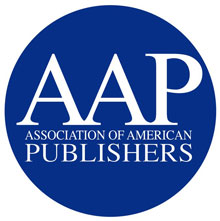October 30, 2019
Kathleen Hall Jamieson Discusses PROSE Awards, Publishing and Politics

The 2020 PROSE Awards are upon us. As the submissions make their way to our offices, AAP sat down with University of Pennsylvania scholar Kathleen Hall Jamieson, whose publisher, Oxford University Press, received the top PROSE honor in 2019—the R. R. Hawkins Award—for her book, Cyberwar: How Russian Hackers and Trolls Helped Elect a President. It was selected from more than 500 scholarly works published across a span of fascinating disciplines.
Submit your professional or scholarly work for a PROSE Award by November 15. More information on www.proseawards.com.
__________________________________________________
How has winning the R.R. Hawkins Award affected you and public awareness of Cyberwar: How Russian Hackers and Trolls Helped Elect a President? How has it raised the profile of your book?
By raising the visibility of the book in fields outside my own, the award led to a number of invitations to participate in conferences involving the intelligence and national security communities. The resulting conversations helped me refine the arguments in the second edition of Cyberwar.
What advice would you give to the author of a work submitted for a PROSE Award?
These awards celebrate the publishers and, in the process, the behind-the-scenes individuals who use their talents to shepherd a manuscript through the process that makes a book readable and read. An author whose work is submitted should use the opportunity to thank both those unrecognized co-authors and the publishers that makes it possible (in a sound bite-driven age) for scholars to reach audiences with extended arguments. In my case, thank you Oxford University Press—a publisher that brought my first serious work (Packaging the Presidency) to market in 1984!
Are you considering updating your book to reflect what has been uncovered about the 2016 election since the book’s publication?
A front-to-back revision of Cyberwar is now in the hands of Dave McBride, my Oxford editor. The second edition should be out in spring. Because the story it tells is still unfolding, I anticipate continuing to update this edition as it moves through the production process. I hope that there is no need to write a sequel after the 2020 election.
Are you considering working on a book about the 2020 election?
My colleagues and I have designed a large scale 2020 study examining the ways in which media and messages affect voters in the battleground states that decided the 2016 election. Our particular interest is on those who balloted for Barack Obama in 2008 and 2012 but chose Donald Trump over Hillary Clinton in 2016. The same study also will build on our past research about the ways in which debates affect viewers’ perceptions of candidate traits, positions on issues, intention to vote, and vote. The increase in multi-screen debate viewing on mobile devices increases the challenges involved in isolating debate effects.
Are there any books you’d like to see submitted for a 2020 PROSE Award this year?
The field of communication has produced some must-reads. Dannagal Goldthwaite Young’s Irony and Outrage: The Polarized Landscape of Rage, Fear, and Laughter in the United States (Oxford University Press) is a gem as are Susan Douglas’s In Our Prime: How Older Women Are Reinventing the Road Ahead (W.W. Norton) and Roderick P. Hart’s Trump and US: What He Says and Why People Listen (Cambridge University Press).
